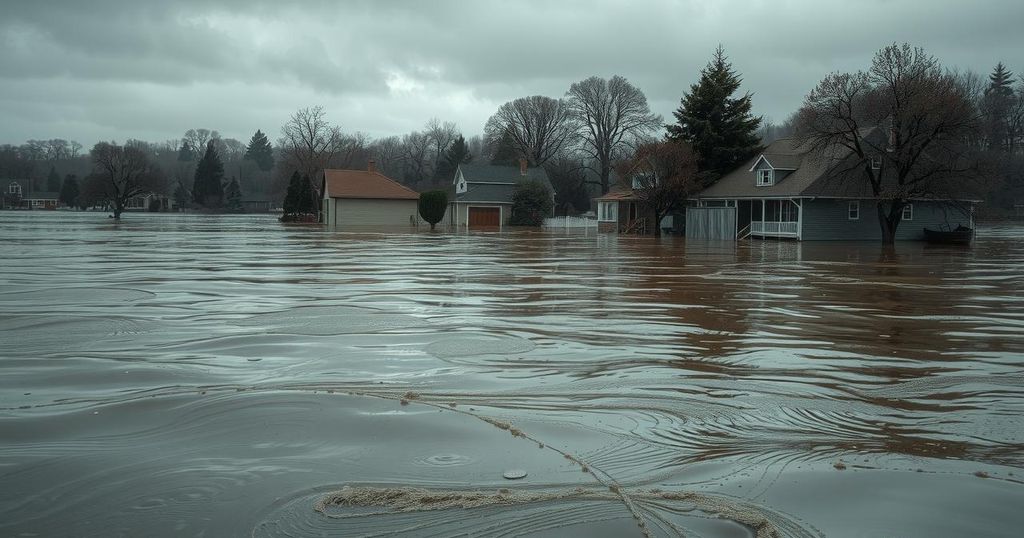Weather
World news
ABUJA, ACCIDENTS, AFRICA, AP, DISASTER MANAGEMENT, FLOODING, FLOODS, II, IIBRAHIM AUDU HUSSEINI, ILLINOIS, JI, JIBRIL MUREGI, MAIDUGURI, MOKWA, MOKWA LOCAL GOVERNMENT AREA, NATURAL DISASTERS, NIGER, NIGERIA, NIGERIAN HYDROLOGICAL SERVICES AGENCY, PREMIUM TIMES, STATE, THE ASSOCIATED PRESS
Marisol Gonzalez
0 Comments
Floods Kill at Least 111 as Northern Nigeria Battles Climate Change
Severe flooding in Mokwa, northern Nigeria, has resulted in at least 111 deaths, with fears that the toll may rise. The situation has been exacerbated by ongoing drought conditions and climate change. Local officials emphasize the need for flood-control infrastructure to prevent future disasters.
In a tragedy that has shocked northern Nigeria, at least 111 individuals have lost their lives due to catastrophic flooding in the town of Mokwa. This market town, located over 180 miles west of Abuja, became the center of a deluge triggered by heavy rains that fell in the early hours of Thursday. Officials from the Nigerian Hydrological Services Agency are still assessing the rain’s impact but fear the death toll may rise as more bodies are discovered amidst the chaos.
The flooding has exposed not just the immediate dangers but ongoing challenges posed by climate change. Northern Nigeria has faced severe dry spells, and when the wet season comes, it often leads to disastrous flooding. The situation has left residences submerged and neighborhoods under water. Residents took to social media, sharing harrowing videos and images of people wading through waist-deep water in desperate attempts to rescue belongings or help neighbors in distress.
There are reports of several bodies being recovered post-flooding, with emergency agency spokesperson IIbrahim Audu Husseini noting that more fatalities could be confirmed as recovery efforts continued. The realities of the flooding reflect a more significant issue regarding infrastructure in the area, raising questions about preparedness for such natural disasters.
Mokwa serves as a crucial junction where northern farmers deliver produce to southern traders. Unfortunately, the recent disaster underscores the need for better flood management strategies in the region. Jibril Muregi, chairman of the Mokwa local government area, emphasized the dire need for flood-control infrastructure, stating, “This critical infrastructure is essential to mitigating future flood risks and protecting lives and property.”
Earlier this year, similar floods in Maiduguri, caused by torrential rains and dam failures, took the lives of at least 30 people and displaced many, exacerbating existing humanitarian crises. The recent events in Mokwa may contribute to an increasing cycle of suffering affected by climatic shifts and inadequate infrastructure in Nigeria.
The tragic flooding in northern Nigeria has resulted in at least 111 fatalities, highlighting both the dangers of climate change and the urgent need for improved flood infrastructure in Mokwa. As residents grapple with the aftermath, officials stress the importance of proactive measures to prevent future disasters. With significant flooding occurring more frequently, the interplay of climate change and poor infrastructure appears increasingly dire, calling for immediate action.
Original Source: www.pressdemocrat.com




Post Comment